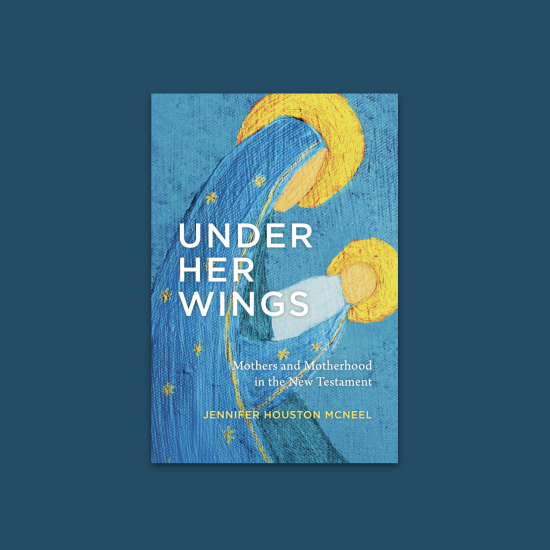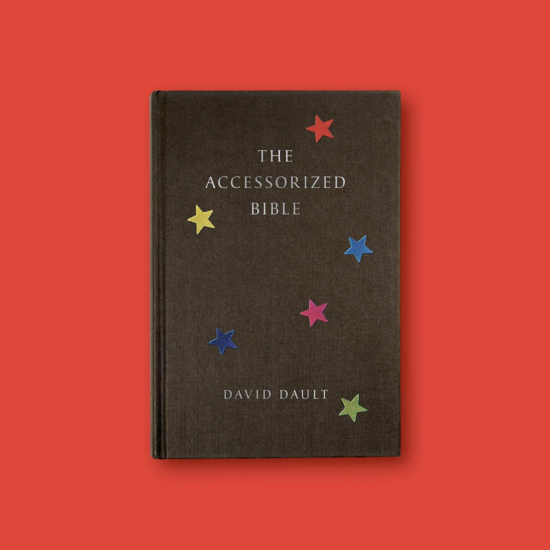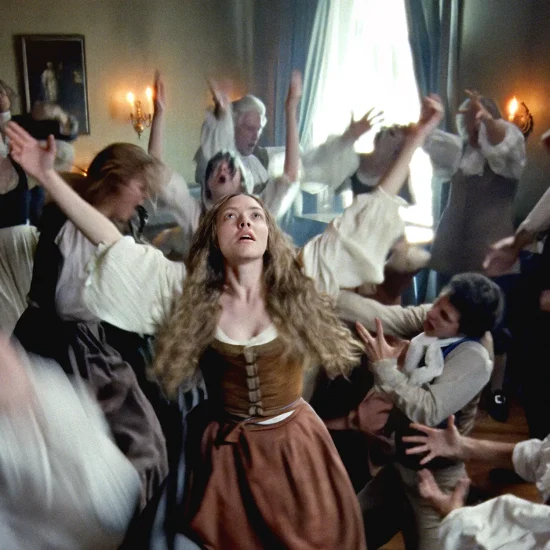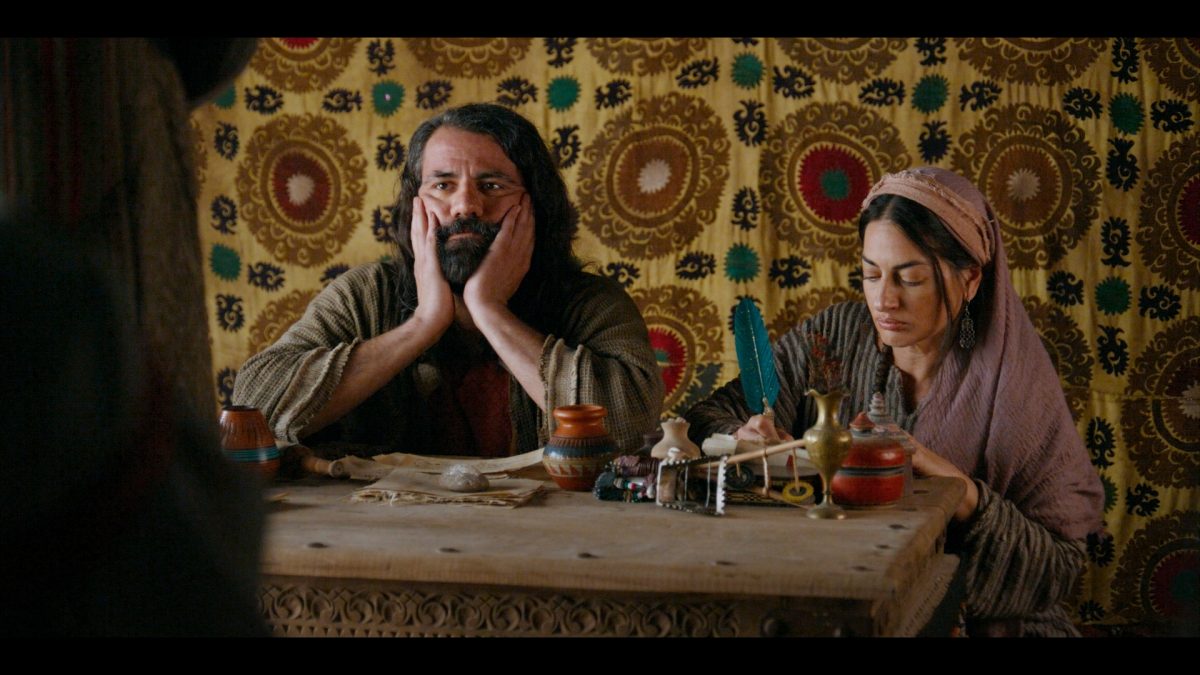
In case you weren’t aware, the Jewish world is in the middle of the High Holy Days. Rosh Hashanah (Jewish new year/Feast of Trumpets) just ended and today, Oct. 1, will be Yom Kippur, the Day of Atonement. Next week, Sukkot (the Feast of Tabernacles) will begin. Sukkot is the holiday in which the Jewish people recall their ancestors’ years of living in the desert before entering the Promised Land.
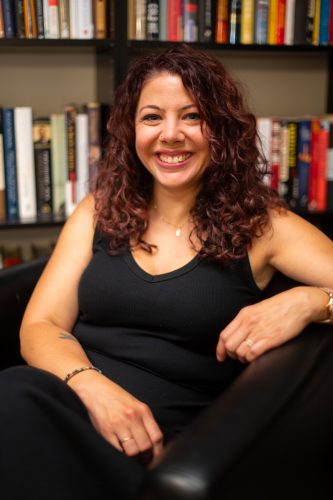
Juliet Vedral
Debuting in the middle of all of these important holidays is the Season 1 premiere of Mitch Hudson’s “The Promised Land” on YouTube. Described as “Michael Scott meets Moses,” the workplace comedy “The Promised Land” is based on the book of Exodus. The documentary-style show is a televisual experience of Sukkot, telling the story of the exodus from Egypt and the Israelites’ life in the wilderness with humor and grace. While irreverent in its comedy, “The Promised Land” is reverent in its approach to Scripture. In a recent interview with Hudson, the show’s writer/director, he informed me that he uses a number of Christian and Jewish texts and commentaries, including the Talmud.
Since Exodus was written thousands of years ago to an audience that had a much different approach to storytelling, it can be challenging for modern readers to see who the actual people Moses and his peers, and even the Israelites, really were. Hudson, an assistant director for “The Chosen,” is not new to taking Biblical content and making it accessible to modern audiences.
“‘The Promised Land’ is a show about people. The characters in the Bible can often feel distant and unrelatable, but they were just people. God used imperfect people back then, and he still does today,” said Hudson.
The humanity of Moses and his wife Zipporah, his brother Aaron and sister Miriam, and Joshua, Moses’ eventual successor, is on display in every episode. Joshua is an overly eager assistant who takes his jobs a little too seriously. Miriam is a proto-feminist, tasked along with Zipporah to help the women in the camp. The show pokes fun at the way women were treated during Biblical times as well as Zipporah’s carefree and gentle leadership in comparison to Miriam’s more serious approach. Moses’ challenges with speaking are contrasted with Aaron’s humor and natural ease in front of people.
“The unfolding of everybody’s character and the relationships that are happening, I think it fulfills and is honest to Scripture but also the in between,” said Wasim No’Mani, the actor who plays Moses. “Mitch really takes advantage of and really lets humanity blossom in ways that are not self-evident when you read Exodus itself.”
Some aspects of the show are purely invented for comedic effect. Chisisi, an Egyptian soldier who made it through the Red Sea in pursuit of the Israelites, is trapped on the other side of the sea when it closes. He is forced to pretend to be Hebrew in order to survive, though Korah, Moses’ cousin, suspects something.
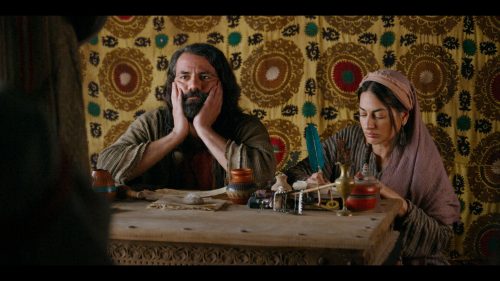
‘The Promised Land’ is available to stream on YouTube now.
Other parts of the show are earnest attempts to understand why some of those figures did what they did. The story of the golden calf is dealt with in a way that provides some nuance and understanding. The show challenges every person who reads that chapter in Exodus and thinks, “I would never do that,” by depicting all the ways certain characters talk themselves into fashioning and worshiping an idol, even though they’ve seen God perform wonders.
The show is also accessible to people both familiar with the scriptures and those discovering them for the first time. Scattered throughout the show are funny references to specific verses that can seem strange to modern readers (e.g., “[s]urely you are a bridegroom of blood to me”).
For someone not familiar with the story of the Exodus or Scripture, the show is still an entertaining and informative experience. Shereen Khan, the actress who plays Miriam, said of “The Promised Land,” it’s “a keen study of the human experience and all of its flaws in the most hilarious way, flaws in earnest. It’s an accurate accounting of Scripture while being really accessible to a large scope of communities. It’s a story that has a very broad reach.”
As millions of Jewish worshipers throughout the world enjoy eating and sometimes even sleeping under a sukkah to remember the journey through the desert, “The Promised Land” is a great reminder that all of us — in all our humanity and flaws — are part of the story God is telling in the world.
Juliet Vedral is a writer, child-wrangler, and amateur shoe collector, as well as a senior associate at The Clapham Group. Her writing has also appeared in Sojourners. A native New Yorker, Juliet currently resides in Arlington, VA, which is still a weird thing for her to say.


